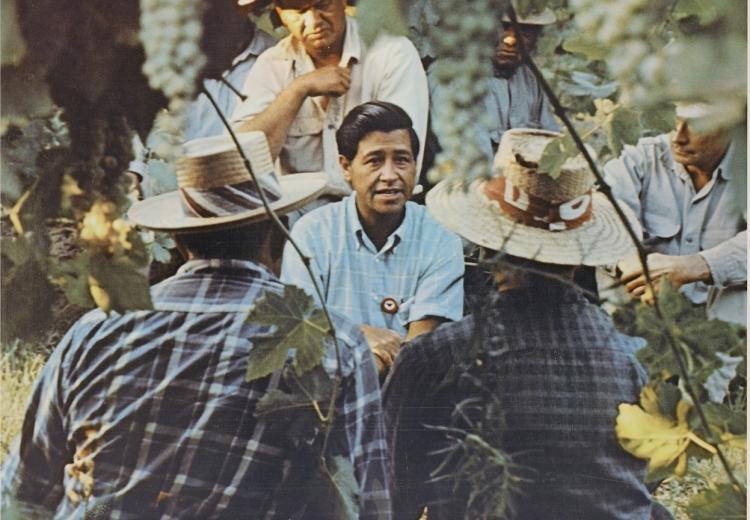"Sí, se puede!": Chávez, Huerta, and the UFW

Photo of Cesar Chávez with farm workers in California, ca. 1970.
The United Farm Workers organized to bring attention and change to the exploitative working conditions faced by farm workers during the 1960s and 1970s. Efforts centered in California quickly grew into a larger civil rights movement for Chicanos and other groups under the leadership of Dolores Huerta and César Chávez, whose legacies remain an inspiration for the civil rights movements that continue in the United States. This lesson provides access to artifacts and primary sources, including our United Farm Workers Learning Lab collection, while also placing Chávez, Huerta, and the UFW within the context of the long civil rights movement.
Guiding Questions
Why was the United Farm Workers Association formed?
How did the political circumstances of the time influence how farm workers organized?
What did César Chávez and Dolores Huerta do for civil rights in the U.S.?
How do the Chicano labor and civil rights movements compare with other labor and civil rights movements in U.S. history?
What is the legacy of the UFW in U.S. history?
Learning Objectives
Examine the origins of the farm worker protests and the extent to which the issues and perspectives changed over time.
Evaluate the legacy of César Chávez and Dolores Huerta with regard to civil and labor rights in the United States.
Analyze the significance of geography and citizenship within the UFW movement.
Analyze competing perspectives that emerged within and in response to the UFW movement.
Evaluate the legacy of the UFW within the long civil rights movement in U.S. history.
